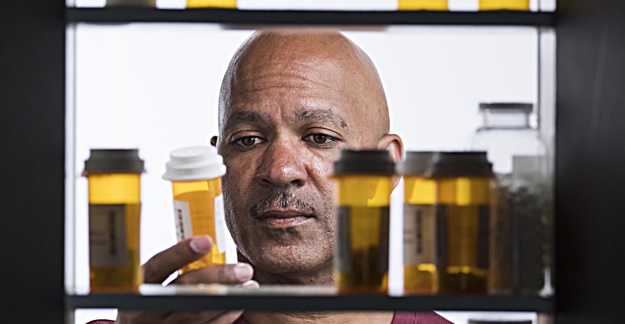If you think you are taking too many drugs, you may be a candidate for deprescribing. Learn the benefits of taking fewer meds and how to go about it.
Does it sometimes feel like you’re taking too many medications for your high blood pressure, heart disease, diabetes or stomach problems? Every time you see your doctor, does he or she give you something else to take? Do you ever wonder if the medicines you take every day are really helping you or just causing other problems?
If you’ve ever had these thoughts or similar questions come to mind, you might be a candidate for deprescribing.
What Is Deprescribing?
A simple definition is that it’s just the ‘opposite of prescribing’ medications. One of the more detailed definitions I like is “Deprescribing is the process of intentionally stopping a medication or reducing its dose to improve the person’s health or reduce the risk of adverse side effects. Deprescribing is usually done because the drug may be causing harm, may no longer be helping the patient, or may be inappropriate for the individual patient’s current situation.”
This may sound like a complicated process, but there is a system to it. And it can be accomplished with some learning on your part along with help from your physician and pharmacist. Remember, you are part of a team, so don’t stop taking any medications on your own.
What Are the Benefits of Deprescribing?
When working with your physician to deprescribe you might see a reduction in the number of medications you take each day, or in the dosage of some of them. You might also experience a reduction or elimination of medication side effects that have been bothering you, so you’ll feel better. You could even see a reduction in your prescription drug costs and save some money! But the ultimate goal of deprescribing should be a “less is best” approach to your drug therapy — taking the fewest medications to control your condition. This helps reduce the incidence of side effects, reduces the risk of adverse drug reactions and improves your overall health and well-being.
Who Needs Deprescribing?
Most of us are taking more medications over time as we age. A recent study found that nearly 40% of older Americans take 5 or more prescription medications. In reality, I’ve filled prescriptions for patients who have between 8 and 18 or more medications they take daily.
Why Is Deprescribing Important?
Every time you start taking another medication you can almost count on increasing the chance of side effects, adverse drug reactions and drug-drug interactions. Many medications can be taken together without ill effects, but as the number of medications you take increases, the risk factors for potential problems also increase. Throw in a few herbal supplements and vitamins along with the prescription medications and you can create a risky scenario for drug-induced health problems.
How Do I Start Deprescribing?
You can start the process of deprescribing by doing some research and learning more about your medications. One of the medication-related health tips I’ve adopted is “A better educated patient is a better medicated patient.” Learn the names of your medications and why you need to take them. This will help prepare you to discuss deprescribing with your physician. Read the patient medication information leaflets given to you when you get your prescriptions filled, then talk to your pharmacist if you do not understand them or need to ask questions. But remember, don’t stop taking or discontinue any medications before discussing it with your physician.
In the next part, Dave Walker discusses how to work with your doctor on deprescribing.






